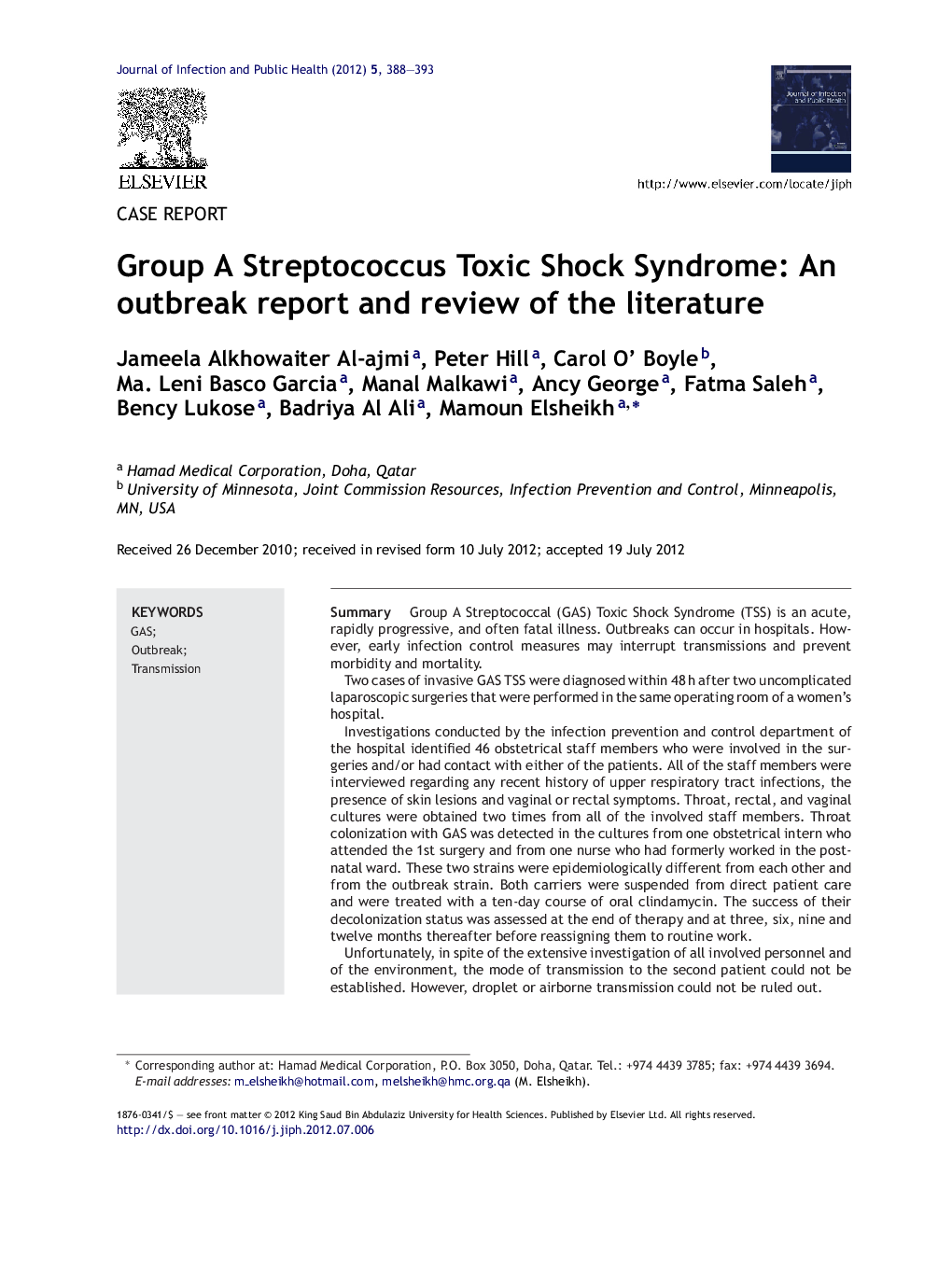| Article ID | Journal | Published Year | Pages | File Type |
|---|---|---|---|---|
| 3406375 | Journal of Infection and Public Health | 2012 | 6 Pages |
SummaryGroup A Streptococcal (GAS) Toxic Shock Syndrome (TSS) is an acute, rapidly progressive, and often fatal illness. Outbreaks can occur in hospitals. However, early infection control measures may interrupt transmissions and prevent morbidity and mortality.Two cases of invasive GAS TSS were diagnosed within 48 h after two uncomplicated laparoscopic surgeries that were performed in the same operating room of a women's hospital.Investigations conducted by the infection prevention and control department of the hospital identified 46 obstetrical staff members who were involved in the surgeries and/or had contact with either of the patients. All of the staff members were interviewed regarding any recent history of upper respiratory tract infections, the presence of skin lesions and vaginal or rectal symptoms. Throat, rectal, and vaginal cultures were obtained two times from all of the involved staff members. Throat colonization with GAS was detected in the cultures from one obstetrical intern who attended the 1st surgery and from one nurse who had formerly worked in the postnatal ward. These two strains were epidemiologically different from each other and from the outbreak strain. Both carriers were suspended from direct patient care and were treated with a ten-day course of oral clindamycin. The success of their decolonization status was assessed at the end of therapy and at three, six, nine and twelve months thereafter before reassigning them to routine work.Unfortunately, in spite of the extensive investigation of all involved personnel and of the environment, the mode of transmission to the second patient could not be established. However, droplet or airborne transmission could not be ruled out.Early and meticulous implementation of infection control measures was crucial and instrumental in the successful management and control of this outbreak. Furthermore, there were no subsequent GAS cases detected during the 24 months following the outbreak.
► Invasive GAS TSS is a serious disease with a high case fatality rate; an ongoing health challenge. ► Early implementation of infection control measures is very crucial in the successful management and control of this outbreak. ► Infection control investigations should start after the identification of the first case. ► Mode of GAS transmission needs further studies. ► The first report on GAS Toxic Shock Syndrome in Qatar.
